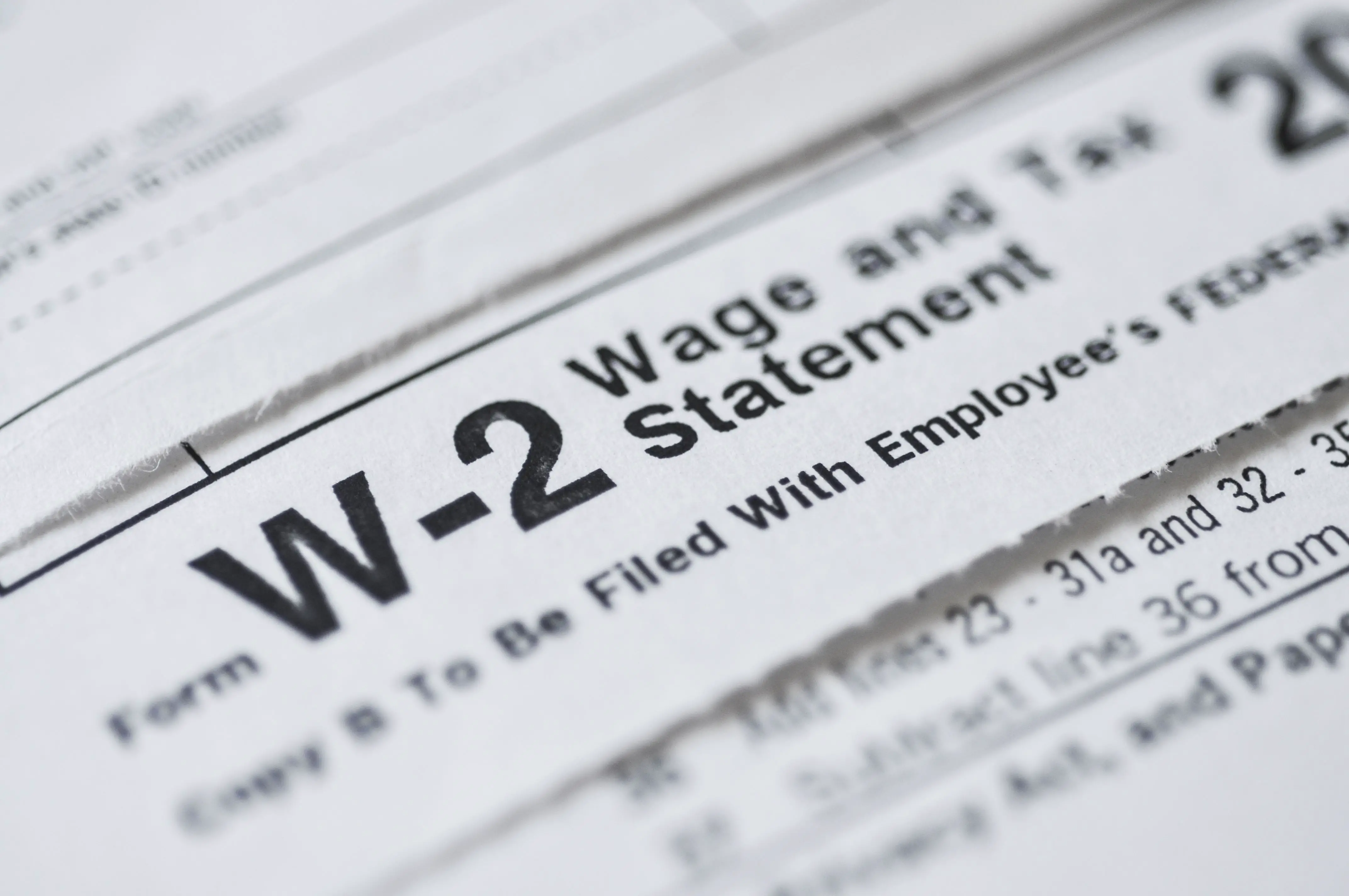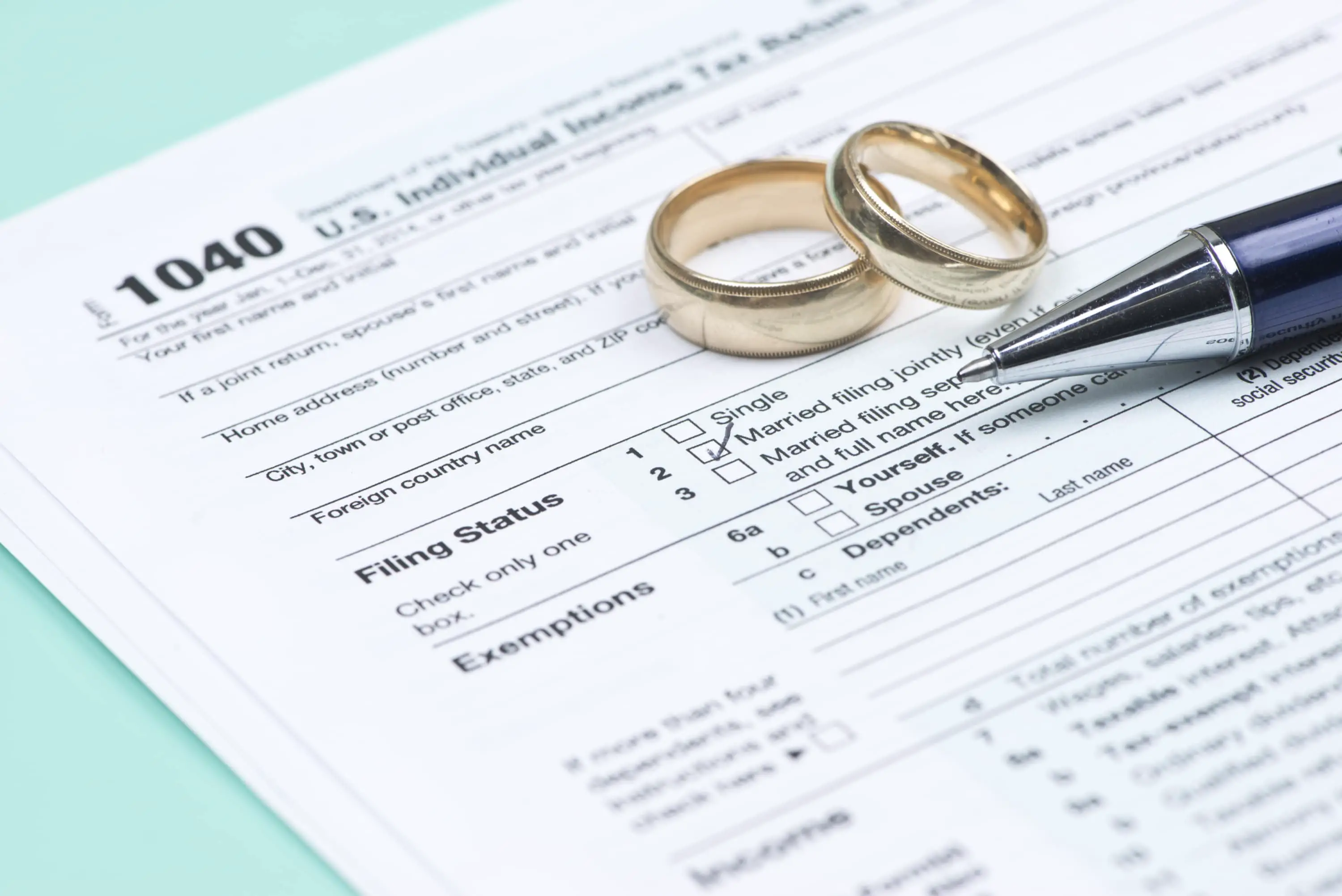Taxes can be something that almost we all detest and want to get over it. But it is a time that we all have to face and file the taxes on time.
It is only a matter of time that the process seems to be overwhelming. But it is not as hard as you might have thought, instead, all you need is a bit of help.
Today we will share with you how to do your own taxes. With these basic steps and tips, you will be able to tackle the taxes. In fact, the process would become more manageable.
Without much ado, let’s get started!!!
Contents
Why Should You Consider Doing Your Own Taxes?

The common question that arises in our minds is why, what is the need? Well, by taking a control of your finances, a lot of things get under your control.
In the end, doing taxes seems to be an easy process. Or you can say, it comes to you naturally.
When you get involved and indulge in the finances, a lot of things become clearer. You get to know about the debts (if any), set up savings, improve financial literacy, etc.
The tax filing part might not be hard to tackle compared to personal finances. Apart from the self-learning part, you would favor your wallet also.
Compared to any tax preparation software, hiring a professional can cost you a lot. So when you opt for doing it on your own, it would be completely free.
What You Need To Do Your Taxes?

Once you have made up your mind to handle the taxes on your own. There are a few certain things that you will need, starting with the basic information.
First, you need to gather up all your financial information. Try to collect this data beforehand to save time. Or else at the last minute, it can all become a hassle to handle.
When you have all the data collected, you won’t have to pause again and again. Apart from this, here is what you need to do your taxes.
1- Gather your paperwork:
For maintaining a smooth ta filing system you need to gather all the tax documents. Without these documents, the completion of the process would be hard to handle. So take some time and find all the necessary stuff beforehand.
This is what you need:
W-2s:

A W-2 form is a necessity and that too from each employer. Usually, you will get this document from your employer without having to ask.
Yet, in case you don’t have the document then contact the Human Resources department. The HR will send you a W-2 without any hassle.
1099s:
This document is only required if you have any business, source of income, or independent work. Your every client must provide you with 1099. It evinces the money you earned for that calendar year.
Interest Statements:

You need a 1098 form if you own a house and must report any interest you paid. This interest is for the course of the year on your mortgage.
If the amount you paid in interest is above $600 only then this report applies. And you need to use the form for reporting your expenses of interest.
Deductible Expense Receipts:
Those who run their own business need to record and maintain the expenses. The expenses you can deduct from the business revenue be well-maintained.
If you think this form would be the most exhaustive one, don’t worry. In fact, it is only the basic info you need for filing your taxes.
Use the income situation to deduce the other info required to fill in the tax forms.
2- Determine Your Filing Status:
To determine the correct filing status is one of the most critical parts of tax preparation. In fact, the filing status has a significant impact on the tax burden. It can be completely altered bases on the status.
The steps to determining the filing status are only 5 different options listed below.
Single:

Choose this option if you are single, divorced, or even legally separated.
Married Filing Jointly:
This one is applicable along with your spouse. But the only condition is when did your marriage takes place. It must be before December 31 of the tax year.
In case you got married after the date, you are not eligible to file as a married couple. Instead, you can go for next year’s tax file.
Married Filing Separately:

Another option is to file the taxes alone, without your spouse. This option might bring a toll on you with a higher amount of taxes owed at a higher rate.
So the best approach is to prepare taxes by both options. It can help to determine which is good for you.
Head of the Household:
This one is for people who are not married but capable of maintaining the home. Either for themselves or at least 1 dependent person. Apart from this compulsion, a few rules also apply based on circumstances.
Widow or Widower with Dependents:
This last one is the least common option while filing taxes. It only applies to people whose spouse passed in the taxing year. And now they are left behind alone or with a dependent child.
Refer to the IRS guidelines, take a minute, and determine the filing status. Usually, the majority of people can fall into either of these statuses to claim.
3- Research Your Tax Deductions:
Before getting into doing the taxes on your own, you need to know a bit about it. For instance, understand the credits you are eligible for and tax deductions.
Only because you didn’t know your eligibility for credit or deduction. This should not put you in a situation where you end up overpaying the IRS.
The most common credits and deduction that you can look forwards to are these. Childcare costs, charity contributions, or higher education credits. So keep in mind to add these in the tax return.
How To Do Your Taxes:

After the completion of the above-mentioned paperwork and status, you are all set to go. Now, to do the taxes on your own, we have 3 methods.
Each of these methods is varying from each other but have similar basics. So choose the one that best suits your requirements and style.
By Hand:
From the IRS website, download the forms required to fill out. These are completely free to download and you can even print them out.
Either mail them in or fill them by hand, it is your call. But this manual method is only suggested for those with simple tax situations.
Though with complex finances also you can opt for handwork. Yet it would only be a real pain only after a few forms.
With IRS Online Fillable Forms:

The e-file site of the IRS offers free fillable forms. These fillable file forms come with line-by-line instructions.
So you can fill them up without any hassle. Even if you are a newbie at this, the instructions can provide enough guidance.
Using an Online Tax Software Program:
If you don’t want to go for either of those options, these refer to online tax software. It will file your taxes but you will have to pay the software for these services.
People who have quite complex tax structure can always opt for such programs. Often the programs will walk you through the whole filing process. Also, this software guides you with prompts along the way.
In fact, these prompts can be of great help as you might notice some details that you might have forgotten.
So here we have a few options:
1- Credit Karma Tax:
Apart from the saving accounts and free credit monitoring, it offers free tax filing. And the best part is its simple to use interface.
2- TurboTax:
To file the basic tax return for a fee, you can use TurboTax. But if your tax process is a complex one, you may have to upgrade to a paid version.
3- H&R Block:
This one is another famous software program for tax filing. It also offers great help with basic returns and that too for free.
Even if you want to opt for the paid options, they are highly affordable.
Which Option Should You Choose?
Now, the real question is which of these options you should choose. So either of these can be an optimal choice to do the taxes on your own.
If you want to get hands-on the best of all, then you are beating around the bush. It completely depends on your preferences, for instance, some people prefer paperwork. Whereas, others would opt for the digital forms and so on.
No matter which method you adopt, in the end, you can file the taxes. Also, this can help you to determine if you owe taxes to the govt. Or if you are capable of receiving a tax refund, etc.
In case, you need to make any sort of tax payment then mail your check to IRS. Then credit/debit card, wire transfer are also options to complete this transaction. IRS online payment system can serve you well with these relevant details.
6 Steps To Do Your Own Taxes:
If you finally have made up your mind to tackle the taxes on your own. Well, the process might seem to be dull as well as tedious, not impossible to handle.
With these 6 steps listed down, you can tackle the complex taxes also. One step at a time will also keep you away from any hassle and save you some extra money.
Keep An Eye On Your Income:
The best approach to make taxing easier is to keep a keen eye on income. If you meet or even surpass certain levels of income during the year. Your first approach has to file a tax return.
Those employed need to check the pay stubs for the year to date income. Then those with multiple jobs need to add them all to the list.
Apart from this, other income sources must be also included here. For instance, rental property, interests, or any investments.
Save the Right Paperwork All Year Long:
Throughout the year you must stay on top of the tax-related paperwork. This is the trick that will save you from extra efforts later.
Start by keeping the receipts so you won’t have to struggle to find them. Either it is a charity donation you made, bills, expanses. In short, anything that includes a receipt, save it for later.
Furthermore, statements also play a vital role in filing taxes. From fellowships, student loans to any investment and grants.
Keep these statements, bills, receipts well-organized. Not only the process will be easy to tackle but save more time.
Even the paperwork after you file should be kept aside. IRS itself prompts that you must have all the records for at least 3 years.
Watch for Your Income Documents to Arrive:
January or February, these are the months when you receive the forms of your income. These can be from the employers or other income sources you have. A full-time employee will most likely receive a W-2 form. It includes earning details, withheld taxes, etc.
People who are either freelancers or work on a contract. You will receive a 1099-MISC form to mention the earnings. Apart from this, chances are that you will receive documents.
These show the interest earned or dividends on the investment. The 1099-INT or 1099-DIV are the forms for such investment. For student loan interest, it is a 1098-E form.
Then a college student or having dependent as one receives a 1098-T form. It would show the fees paid for tuitions, grants received, etc.
The purpose is to determine credits and deduction relevant to education expenses.
Unless you receive a W-2 or 1099 form from each workplace. You can simply not file the tax return for the year.
The IRS form for individual income taxes is 1040. Hence these documents are used to fill out the form while filing taxes.
Learn Which Credits and Deductions You Can Take:
It is important to know about the deductions and credits as a lot of people ignore them. To pull the proper documentation while filing, these play a vital role.
So here a few of these credits/deduction to consider:
Student Loan Interest:
In interest payments, you can deduce up to $2,500. It simply depends on the adjusted gross income.
Charitable Deductions:
If you itemize your taxes and then donate to your favorite charity or any institution. You can deduct these donations also.
Freelance Expenses:
Being a freelancer can be your strength while filing taxes. You have the benefit to claim deductions relevant to the work-expenses.
For instance, office supplies, subscriptions can cut you some slack. You can even check the IRS website if you think you might qualify for further deductions or credits.
Saver’s Credit:
Those who are neither a full-time student nor claimed as a dependent. Then if you contribute to a retirement plan you may be eligible for a tax credit.
Your filing status and adjusted gross income have an impact on the amount of credit. If your adjusted gross income is $32,500 or less, and filing status is single then you are eligible for the credit.
But if you are either married or filing jointly, eligibility depends on a gross income of $65,000 or less. These numbers are subjective to changes in the coming tax years.
Mind Your Deadlines:
As we mentioned earlier, the tax documents arrive either in January or February. So this gives you straight 2 months to prepare the tax return. The usual due date of return is April 15.
Now, your approach must be to plan the date when the return process starts. Also, ensure that the date is early enough to give you enough time.
Often we need to plan another session or more so there is the time required for gathering documents or help.
The general approach via experts is to file the return earlier instead of being late. A common crime on the rise is tax-related identity theft.
So when you file the returns earlier, you can avoid such a scenario. Also, if there is any refund that you own, chances of getting it sooner are high.
Here is a pro-tip for you all. If you think the allocated time is not enough and you need a bit more to file.
Well, you can file an extension to get extra 6 months before submitting the return. Hence the return gets extended till October.
In case, you owe the government money, then the extension won’t help. In fact, you need to get done with the estimated taxes by the due date.
Or else it would result in penalties and interest. IRS office offers payment plans for those who can’t pay the returns all at once.
Decide How to File Your Tax Return:

Now, the last and final step is to make a smart choice of a filing method. Once you know the right method that best suits you, the rest is pretty easy.
Free File:
This is a term relevant to tax which means income minus certain tax deductions. If the adjusted gross income is less than a certain limit.
So IRS offers free tax preparing software programs. It makes the return process pretty easier and has various features to help you out. Hence you can get to know about any possible deductions and credits.
IRS Online Forms:
IRS has e-paper forms for those with adjusted gross income higher than the limit. These will do all the math for you and also offer basic guidance.
But they don’t offer any help relevant to credits and deductions that you can take.
Tax Preparation Software:
By paying a small fee you can get a lot more guidance and use the online tools. There are several providers in the market offering such tools.
Not only will they direct you throughout the tax return. But also help with finding out possible deductions and credits.
Tax Preparer:
The market seems flooded with professionals that offer one-on-one help. So you can also refer to such an expert in any tax preparation firm. Always opt for a person that is trust-worthy and eligible.
The reason is you will share up a lot of personal information and sensitive data.
Even IRS has a directory of verified tax preparers. Hence you can use this option to find a verified tax preparer nearby.
Is Doing Your Taxes A Good Option?
A lot of you will have this thought that is it even a good idea or how to do your own taxes.
It is completely normal to feel this way and we are here to help you out. Now, coming towards the taxes being a good option or not.
When Is It a Good Idea?
There is no lie in the fact that tax preparation is a tedious and time-consuming process. Many people initially opt for doing it but give up soon due to the efforts it requires.
But if you know the right method, you can also tackle this difficult task. In fact, by doing it on your own, you can even save some money. Moreover, it allows you to have more control over your finances.
When you make up the mind to do the taxes, you start paying a lot more attention to minor details. The process will likely take some hours hence ensure to set aside enough time span.
When Should You Consult A Professional?
There can be 2 reasons when you would feel the urge to consult a professional. Either you don’t have several hours to set aside or the tax situation is pretty complex.
So to save yourself some time and cut some slack, you can seek professional help. Especially those who have a side business, various 1099, W-2s, etc.
With all such scenarios, the taxes get far more complex than a novice can handle. So the ultimate solution is to get some professional do it for you.
Also Read: 10 Amazing Benefits Of Budgeting Your Money!
Conclusion!
The taxes might be intimidating at first but you only need the proper guidance and right tools. We hope after reading this article, you will be able to file your own returns.
Even though we tried to cover every aspect of how to do your own taxes. Yet in case of any further query, you can always contact us.